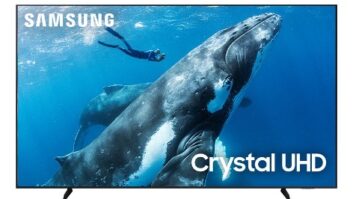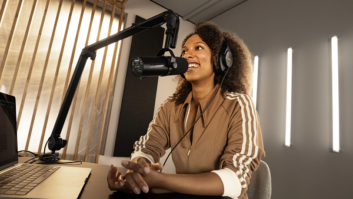Washington, D.C. – More content and multi-industry cooperation are needed to get the nation’s transition from analog to digital television broadcasting on the fast track to broad-based national acceptance.
That was the consensus conclusion expressed Tuesday by a majority of multi-industry leaders participating at the Consumer Electronics Association coordinated DTV Summit, titled ‘The DTV Transition — Is Laissez-Fare Fair?’
Regarding the event’s central question, panelists offered divergent positions, with representatives of the broadcasting industry, including Jim Goodmon, president of Capitol Broadcasting and David Donovan, new president of MSTV-an association of mostly smaller television broadcasters –continuing to advocate DTV must-carry mandates for cable and satellite providers and requirements that DTV tuners be included in all televisions.
In expressing concerns of consumer electronics manufacturers, Bob Perry, Mitsubishi marketing VP, said that more content and cable carriage are critical to continued success, but warned that DTV tuner requirements for all televisions would, in the near term, price products beyond the reach of those who can least afford them.
He also countered claims that competition would drive such costs down to affordable levels, by stating it takes five to six years for the cost of integrated circuits to be scaled down to levels that would seem transparent to buyers. At today’s rates, he said, the average analog television set could cost between $600 and $1,000 more if laws required an integrated DTV tuner.
However, costs should hit the affordable range by the time the country is ready to switch off analog broadcasting (now slated for 2006), he added.
Still, CEA officials, CE manufacturers and Capitol Broadcasting’s Goodmon said that despite some setbacks, advances continue to be made.
Good news came from recent agreements among some of Hollywood’s largest studios, who have accepted Digital Transmission Content Protection (DTCP) copy protection technology to ensure against illicit duplication and distribution of their programming over closed digital systems, such as direct-to-home satellite and digital cable, using IEEE-1394 digital connectors.
Warner Bros and Sony Pictures announced DTCP support last week, and Universal Studios, Fox, The Walt Disney Co., Metro-Goldwyn-Mayer Inc. and Paramount Pictures were said to be close to signing off on DTCP and 1394 as well. Licensing terms are still to be worked out, however.
Broadcasting representatives attending the DTV Summit, however, continued to demand copy protection and water marking systems to prevent the unauthorized redistribution of their over-the-air signals via the Internet.
Representatives of CEA’s market research department also issued updated consumer surveys showing DTV awareness and satisfaction levels were, for the most part, continuing to grow from previous studies.
Among the findings were that consumers who elected not to buy a digital television when considering one were put off most by high cost (55 percent), the perception that they need addition equipment (34 percent), not enough programming yet (26 percent) and lack of HDTV programming over cable (24 percent).
One negative finding showed that number of consumers expected to purchase a TV next year slipped from 21 percent last September to 19 percent in July, and the number who expect their next TV to be a DTV slipped from 62 percent in September to 54 percent in July.
Meanwhile, the association said that while sales of analog televisions were down somewhat from last year, the growth of digital TV products is more than making up the difference from last year’s levels.
See August 6 edition of TWICE for more DTV Summit coverage.













